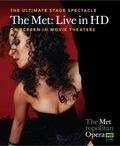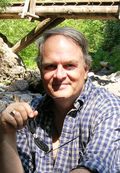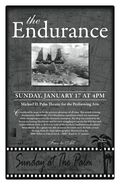Like it hot?: Telluride’s Palm Theatre presents Bizet’s “Carmen”
[click "Play" to hlisten to Bunny Friedus-Steel speak about "Carmen"] In one scene, the lovers are hitting high notes while coupling on the floor. Coming soon to your local theater in Telluride: Sex, rebellion, and violence.
In one scene, the lovers are hitting high notes while coupling on the floor. Coming soon to your local theater in Telluride: Sex, rebellion, and violence.
Are we talking about the subject of the latest country & western hit or one of The Nugget's nuggets, a Tinseltown bodice ripper starring the babe du jour. Answer: neither of the above. On January 22, 6 p.m., New York's Metropolitan Opera, live in HD, is coming to Telluride's Palm Theatre. And not just any opera, Bizet's 1875 masterpiece "Carmen," reputed to be the most famous opera in the world.




